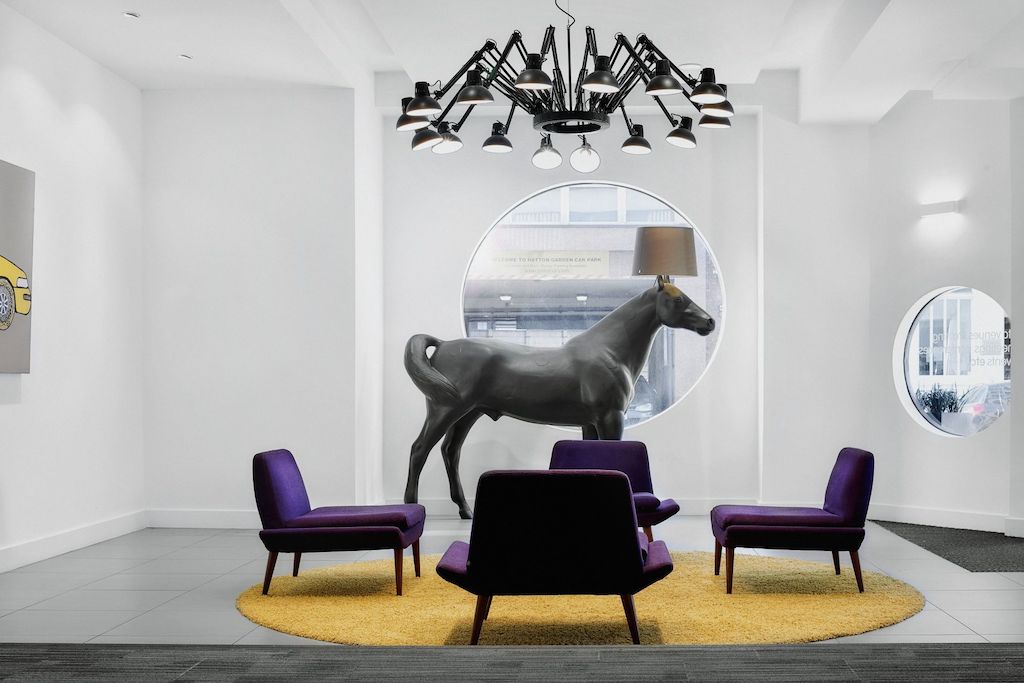Skift Take
As the boutique trend sweeps the events industry, a handful of venue providers are jostling for top spot. London's Etc. Venues thinks its "laser focus" will allow it to stand out in the United States, but will it be able to compete with more established players like Convene?
Planners increasingly want customized, unique venues for events, a desire that is quickly reshaping the meetings industry. Traditional convention centers and bland conference rooms are losing ground as organizers look for trendy hotels, restaurants, or historic sites to host attendees.
It has led to a growing crop of boutique venue providers — event companies with an eye for cool spaces, which they lease and then redecorate using in-house designers. For London-based Etc. Venues, this extends beyond design and includes catering and tech support. The company, which recently raised $150 million and just made its first steps across the pond into New York, is entering an increasingly crowded field, and thinks it can differentiate itself by having a very specific focus.
“It comes back to that laser focus and being narrow and deep in terms of what we do,” said Nick Hoare, chief operating officer at Etc. Venues. “We want to provide event, conference, and meeting spaces. We’re not going to be going into spas or workplace, or whatever else others are doing. This is the only way we can be the best at what we do.”
The boutique space is all about “narrow and deep.” Planners are starting to reject the all-purpose hotel convention center, which often looks the same whether it’s in Las Vegas, San Francisco, or Miami.
With its expansion into New York, Etc. Venues will be going directly up against its biggest competitor, Convene. Like Etc. Venues, Convene leases meeting spaces, decorating them using its own interior designers, and providing in-house catering and Wi-Fi. But Convene spans a much broader inventory, going beyond just meetings into office space.
“With Convene, we think they’re allied with us in terms of changing the way in which people consume space,” Hoare said. “They’ve actually been very helpful because they’ve massively increased the awareness of this sort of product and have helped people move along that adoption curve.”
Hoare believes that the industry is more cramped in Europe than in the U.S. In London, the company has many more competitors, such as CCT Venues and hotel chain De Vere, though they tend to be relatively small. If Etc. Venues expands to continental Europe, the company will be up against venue provider Chateauform, and in Australia it will be competing with venue provider Cliftons.
Etc. Venues wants to get into the U.S. market while there’s still room.
The company’s strategy is to focus exclusively on small and midsize meetings, with the number of attendees ranging between about two and 700 people, and choosing very select cities with a lot of business clients.
The company launched in 1992, but so far it’s only in three cities — London, Birmingham, and Manchester. It has three venues slated to open up in New York over the coming year and plans to push that number up to 12 within the next four years. So far, it doesn’t have any concrete plans to move into continental Europe or Asia-Pacific.
“When we think about the vision of our business, we can’t see why we shouldn’t be in every major global city as a statement, because we think the model is highly transportable,” Hoare said. “But in terms of executing a plan, we want to do it incrementally, so we want to grow quickly but sustainably. And we really want to prove that it works in New York before we go elsewhere.”
How Tech Fits In
Meanwhile, boutique hotels, such as Marriott’s Moxy line, are creating unique meeting spaces, focusing on the newer generation of business travelers, who tend to want things fast, flexible, and personalized. Hotels don’t usually give the same attention to food and tech as events companies do, however. Meeting planners often have to source these features themselves, and even at smaller meetings, hotel Wi-Fi is frequently spotty and unreliable.
The trend is being replicated in corporate travel as well, as Airbnb becomes a more popular option for business travelers, and startups like Zeus Living provide curated corporate housing options. Along with this trend has come the rising popularity of 3D tours, as planners increasingly expect to be able to virtually explore a venue before booking it.
Cvent recently bought event tech company Social Tables, a platform that allows planners to see a 3D diagram of a potential venue, in perhaps the biggest endorsement of this technology so far. At this point, it’s something boutique venue providers simply need to have if they want to be competitive. Etc Venues offers a similar service for their venues, as does Zeus Living and Convene.
Right now, the company is looking to invest more in tech, believing that it will help them scale further and stand out from the crowd. It already has an option to instant book on its website, a feature that is still relatively uncommon in the industry.
“We’re quite good at using technology to help on the sales side of things. Whether it’s virtual reality or interactive floor plans. We’ve got an online booking tool,” Hoare said. “Now we want to go further than that and provide information to the attendee around way-finding, agenda changes, and pinpointing locations.”
Have a confidential tip for Skift? Get in touch
Tags: boutique hotels, convene
Photo credit: A networking space at one of Etc. Venues' properties in central London. Etc. Venues
